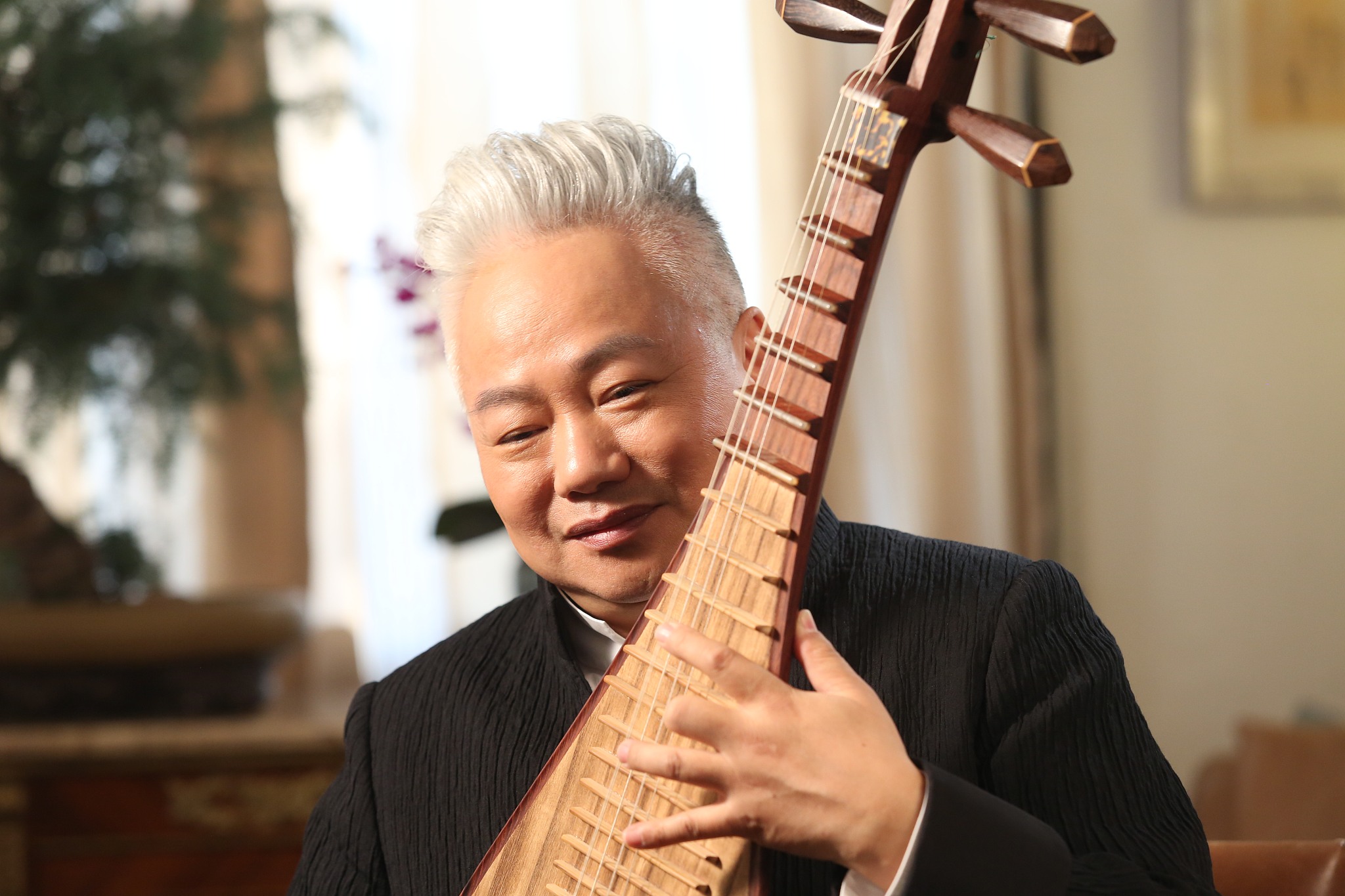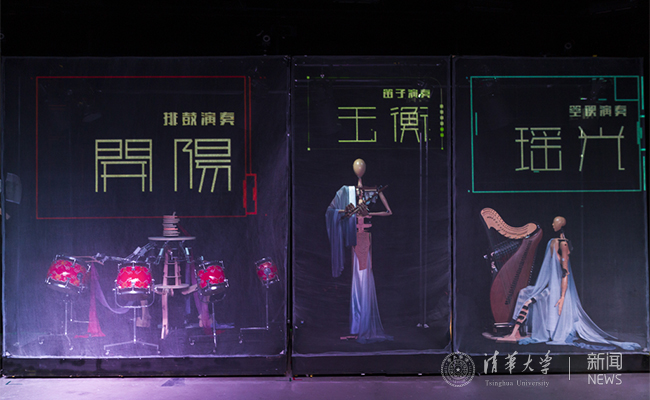Ever thought of a concert where musicians and robots play music on the same stage? This wild concept has been made possible.
To celebrate the 110th anniversary of Tsinghua University and the 9th anniversary of the New Tsinghua Xuetang, traditional Chinese music maestro Fang Jinlong, Tsinghua University's MOJA Robot Band, and several other great musicians staged a creative concert. With the integration of arts and technology, this futuristic concert connected tradition and innovation with the beauty of music.
Fang Jinlong is a musician who has been devoted to preserving and promoting traditional music among young people for years. He has attracted lots of young fans on his social media platforms.
Before the official performance, Fang took the stage to show the audiences the basic playing methods and characteristics of several classical Chinese instruments, including the pipa, a four-stringed Chinese musical instrument; the xun, one of the oldest musical instruments in China; and the guqin, a plucked seven-stringed Chinese musical instrument. In addition, he used humorous body language and vivid descriptions to introduce the similarities between Chinese and Western music.
He then used the guqin and other instruments to play a song with his partners on the theme "water." He also played a piece of traditional Chinese music, "Yuguangqu," also known as "Song of the Fishing Light," using an ancient Italian instrument.
Fang Jinlong, now in his late 50s, said that he has been a musician for 42 years and released nearly 40 albums, but previously his music wasn't all that popular among younger listeners. It made him think and inspired him to alter and innovate his music.

Fang Jinlong plays the pipa. /CFP
Fang Jinlong plays the pipa. /CFP
The process of experimenting with his music and making his music popular among young audiences is "like that of an experienced chef sensing how different ingredients will change the flavor of a dish," he told Xinhua News Agency.
"Music can bridge cultures and connect generations," Fang said, adding that he hopes to introduce traditional Chinese musical instruments with a contemporary touch, by conducting live streams and playing pop songs from the East and the West.
Then he used one of his best instruments, the pipa, to show the musical styles from all over the world. Rather than giving a performance, Fang gave the audience a lively lesson in Chinese classical instruments.
Fang then collaborated with the robot band from Tsinghua University, MOJA, to perform a number of traditional Chinese songs, including "Dance of the Yao Tribe," and "Zizhudiao," also known as "Purple Bamboo Tune," which were received with great applause.

MOJA, a Chinese style robotic music band from Tsinghua University. /Tsinghua University
MOJA, a Chinese style robotic music band from Tsinghua University. /Tsinghua University
The three MOJA band members are Yuheng, Yaoguang and Kaiyang. They are named after three stars of the Big Dipper, and they play traditional Chinese musical instruments - bamboo flute, the konghou - an ancient plucked stringed instrument, and drums.
This project was developed by an interdisciplinary team, which consists of robot engineers, sculpture artists, new media artists, drama experts, and musicians. Two-thirds of the members come from the Academy of Arts and Design, Tsinghua University.
In recent years, robot art, as a brand new art form, has emerged at home and abroad. Unlike industrial and services robots, art robots pay more attention to the relationship between robots and humans or between robots and social culture.
"Through the bridge of art, we hope to convey the idea of harmonious coexistence between humans and technology," said Mi Haipeng, associate professor at Tsinghua University's Academy of Arts and Design who also leads the project, adding that the robot band will have more members in the future.

